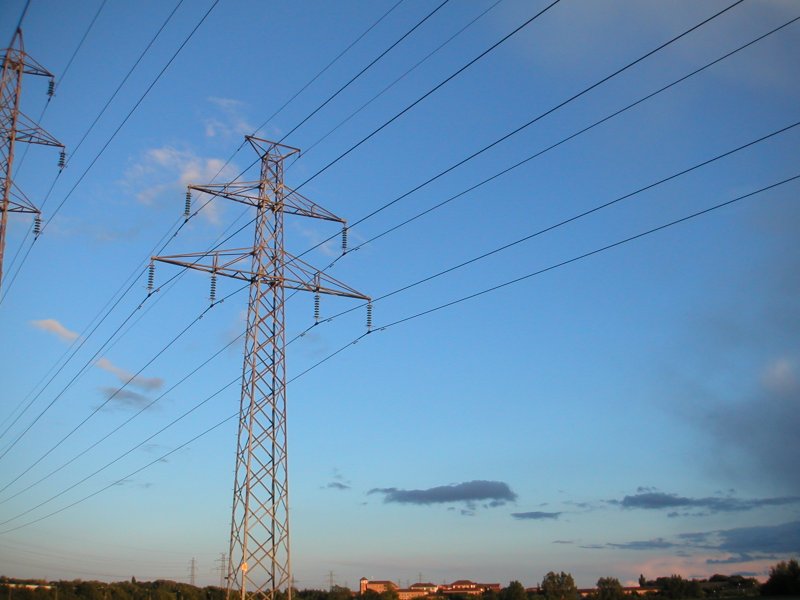
Electricity: The Catalyst
Electricity supply is a catalyst for economic development. Operating a factory, maintaining a business, transporting crops and goods are impossible without utilizing some form of energy. Electricity at a more basic level is indispensable. Without it, people cannot refrigerate, use household appliances or illuminate their homes.
Check out our upcoming conference:
Electricity Supply – What it Means for Security, Developments and Geopolitics
The IEA estimates that over half the world’s population – 3.5 billion people – has no electric power or has a constrained supply. Developing countries bear the global brunt of those who still live in darkness; 95% of the 3.5 billion people reside in Sub-Saharan Africa or developing Asia while 84% reside in rural areas. In order to halve the proportion of people in poverty by 2015, one of the United Nation’s Millennium Development Goals, almost 1.2 billion more people will need access to electricity and 1.9 billion more people will need access to modern fuels by 2015.
 Moreover, demand for electricity is rising; it is projected to increase by more than 2/3 by 2035, with China, India, Southeast Asia, and the Middle East at the forefront (WEO, 2013). Electricity prices are expected to increase globally. Climate change will force us to regulate CO2 levels, increasing the production and distribution costs of electricity. The power sectors is the most capital intensive in a state, making obtaining financing difficult. The lack of local skills, equipment, and infrastructure hinder development projects.
Moreover, demand for electricity is rising; it is projected to increase by more than 2/3 by 2035, with China, India, Southeast Asia, and the Middle East at the forefront (WEO, 2013). Electricity prices are expected to increase globally. Climate change will force us to regulate CO2 levels, increasing the production and distribution costs of electricity. The power sectors is the most capital intensive in a state, making obtaining financing difficult. The lack of local skills, equipment, and infrastructure hinder development projects.
Nevertheless, there is a strong correlation between electricity and economic development, and therefore, it is imperative that the private and public sectors invest in energy and electricity. Expanding the electric grids to rural areas, reducing blackouts, and prioritizing the provision of electricity in countries’ agendas will spur economic growth and development. Investing in electricity will remove barriers to business; effectively deliver education and healthcare; and buffer the energy sector from the adverse effects of climate change.
Removing Barriers to Business
Access to a constant flow of electricity is crucial for the efficient functioning of businesses. In Sub-Saharan Africa, 70% of businesses “cite the lack of access to a reliable source of power as a main constraint to doing business,” preceding both finance and corruption. Power outages in Africa average to about 56 days per year, with firms losing as much as 6% of sales revenue. The World Bank estimates that power shortages wipe out nearly 2-3% of GDP in Africa. A secure source of power involves integrating independent electricity grids, and expands and links the network of businesses around a country; it can lead to the “creation of new markets, jobs, [and] opportunities. Longer business hours, greater access to online resources and the broader business community are all products of a consistent power supply.
Investing in building a cohesive state electric grid and in electricity transmission infrastructure will facilitate the distribution of power to rural areas where energy is most necessary. Rural towns will not only have increased opportunities to conduct business, but they will be less isolated and more connected to urban centers.
Delivering Education, Healthcare, and Community Services
“The historic neglect of energy in community services undermines the ability to deliver education, healthcare and development.” Over thirty percent of health centers in Sub Saharan Africa, and nearly half in India, lack power, which serve a total of 235 million and 580 million people, respectively. In Kenya, only 20% of health facilities have a consistent power supply, and most experience “regular blackouts.” This dearth of reliable electricity hinders the proper execution of clinical services, and increases the risks of patients undergoing critical procedures including childbirth and emergency treatment.
“Half of primary school children in developing countries – nearly 291 million children – attend schools without access to electricity.” Dependable electricity will allow countries to provide and improve critical community services – notably schools, clinics, and other essential infrastructure. However, in many LDCs, the government hasn’t fully recognized the importance of the energy sector to communities. Governments should allocate a greater portion of energy sector spending to developing communities. Many economists have argued that education is a key to poverty alleviation and economic growth; creating a reliable source of energy would facilitate this process.
Challenges
Working towards the integration of independent electricity systems poses a challenge for electricity development in many countries. Inadequate transportation networks, limited available landmass, and rugged terrain hinder the ability of companies, such as APR Energy, to expand the energy sector. Dense, urban areas – the spaces in greatest need of a consistent and reliable supply of electricity – lack adequate land upon which to develop power. Furthermore, APR cited that the high fuel cost required for power generation was the biggest challenge in implementing energy projects. The installation of sites in remote, underdeveloped, rural areas further compounds the situation, especially when faced with minimal transportation networks. Lastly, especially in developing countries, firms are unable to find skilled local workers. However, APR takes the initiative and conducts international local training on the maintenance and operation of sites. Not only can firms construct electricity sites, but in doing so, they can equip locals with valuable and marketable skills.
In order to provide electricity to half of the world’s population currently living in darkness, private sector investment must grow. More importantly, national governments “need to adopt strong governance and regulatory frameworks and internal capacity building.”






[…] Electricity: The Catalyst Sophia Dahodwala Electricity supply is a catalysts for economic development. Operating a factory, maintaining a business, transporting crops and goods are impossible without utilizing some form of energy. Electricity at a more basic level is indispensable. Without it, people cannot refrigerate, use household appliances or illuminate their homes. […]